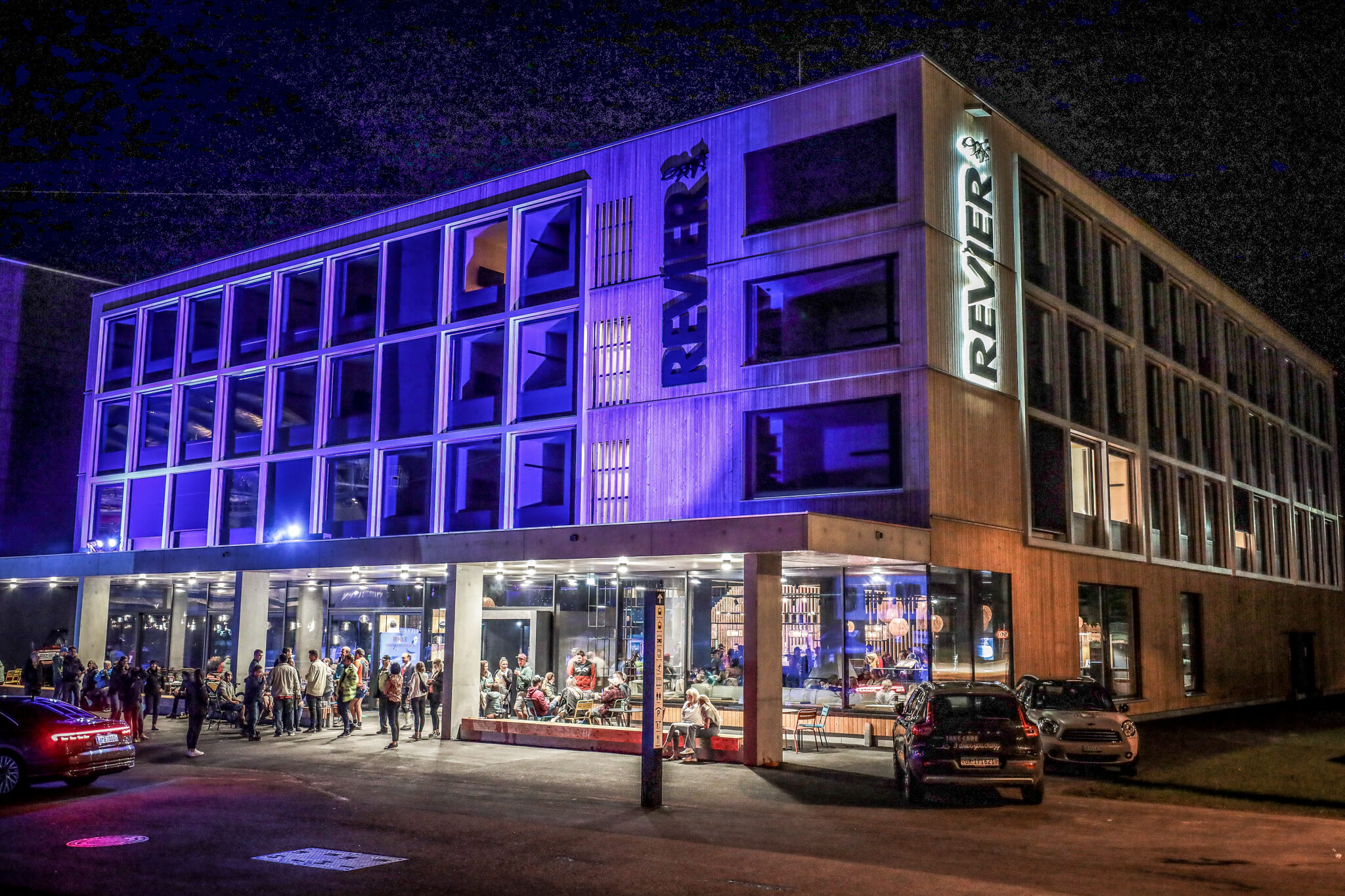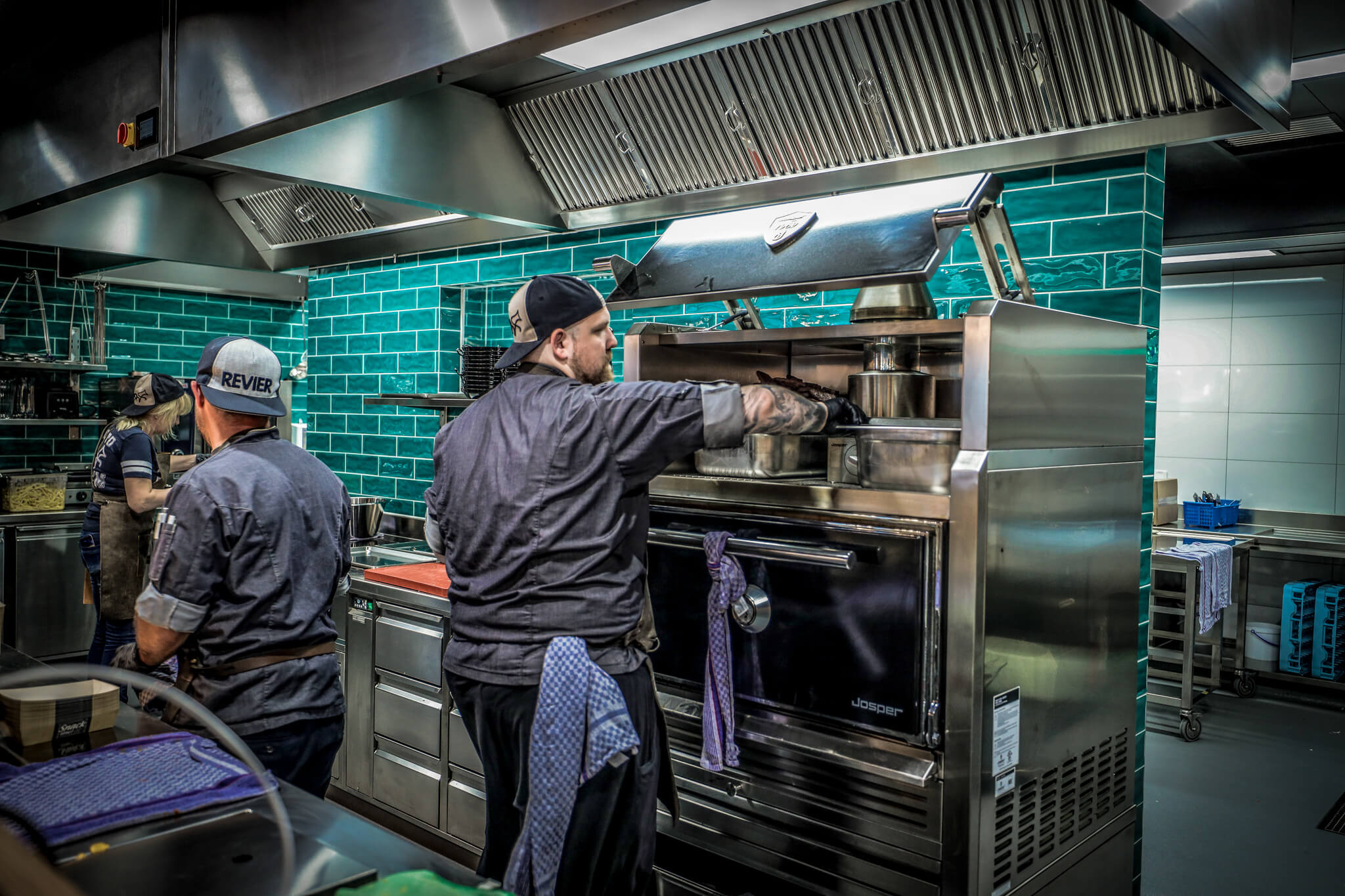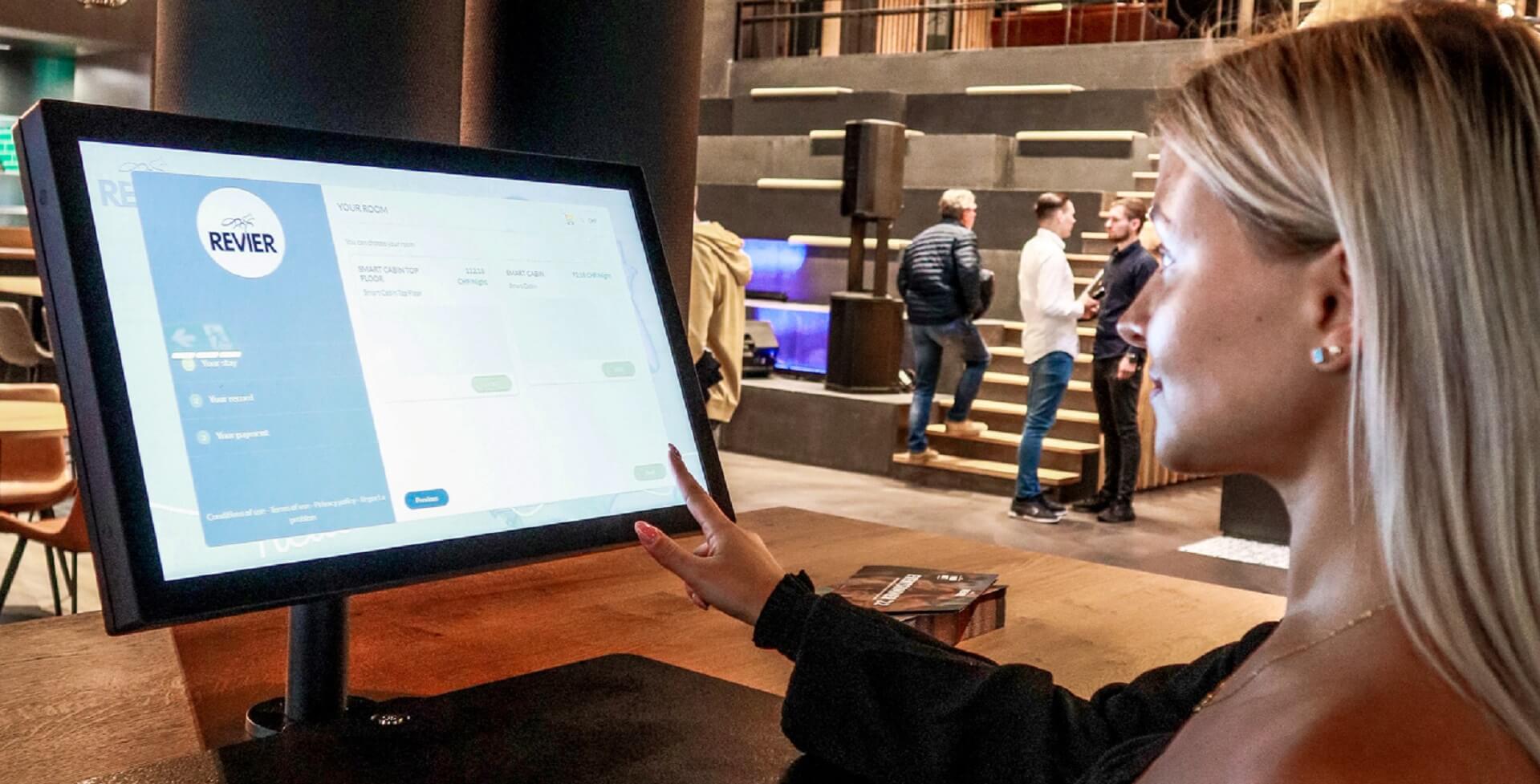The lack of skilled workers in the accommodation and hospitality industry worldwide is nothing new. According to a new study based on figures from the ONS (Office of National Statistics), around 37 % of businesses in the hospitality industry in the UK are having problems filling job vacancies. In Austria too, around every tenth position in the accommodation and hospitality industry was vacant at the start of June 2022, and a shortage was declared in the waiting profession. It is currently not possible to assess whether this measure will have an impact in the long-term.

Image: AdobeStock | fizkes
Structural changes, salary adjustments, improvements in working conditions, etc. – many aspects are being speculated on and discussed. Whatever happens, it will take time that many businesses do not have, because, luckily, guests have returned in full force after the Corona pandemic. So what can be done?
Combating the shortage with less skilled staff
Although this idea may sound confusing, it is already a reality for the Swiss Revier Hospitality Group and Koncept Hotels in Germany: Simply put, their approach is to hire fewer skilled workers. This is made possible by outsourcing processes to guests. “We mainly focus on back-of-house areas,” explains Daniel Renggli, Managing Director of the Revier Hospitality Group. “The guest process from booking to check-out is automated”. Manual support is only required in a few cases here.”
The same goes for the daily cleaning of the room. This is not included in the basic service, but can be added to the booking as an extra. Interim cleaning starts from four nights. “In Switzerland, we have already reached the point where guests can order and pay on their cell phones if they wish, and we deliver their food to the table,” continues Renggli. He sees this as added value, “even though I have to do it myself”. He really has no interest in waiting for staff to take payment.

Image: Adobe Stock | littlestocker
Anything a guest does not need is removed
The saving potential therefore lies in outsourcing certain services to the guest and making other processes more efficient. The same approach is applied at Koncept Hotels: at the site in Cologne’s city center, breakfast is no longer offered due to the many options available close by. “Every day, we examine what service a guest expects at the relevant destination and what they need,” explains Yvonne Mertens, Director of Operations & Sales of the hotel group. This allows us to tailor concepts, facilities and hotels very specifically to our clientèle.
For example, the hotels have self-service modules for guests, where they can collect towels, toilet paper and a kettle themselves. For this approach to work, the communication with the guest must be so clear that the process is second nature. According to Renggli, the target audience is the modern generation anyway, who “are very experienced with digitized approaches and prefer to do things themselves instead of being served in some cases.”

Image: Revier Hotels
Guests are still greeted when they arrive at the Revier Hospitality Group – and staff are on hand to help if needed: “It’s not like there are no staff to talk to, they just aren’t behind a desk waiting for people to arrive.”
Fixed departments and tasks are a thing of the past
The advantage of reduced personnel requirements compared to a business offering a comprehensive service is not to be dismissed. This is also key for Mertens, although trained, motivated and reliable staff are still required in housekeeping and reception. “However, our advantage is that, thanks to our digital infrastructure and rather unusual internal processes, we can also give career changers the opportunity to take their first steps in the hotel industry with us – even with no training or professional experience in the field.”

Image: Revier Hotels
But working in fixed departments is a thing of the past with concepts like these – or this is certainly the case at the Swiss Group at least. Housekeeping in the morning, service or kitchen in the afternoon; although the specialists have their regular tasks, their departments are fluid. “Our employees are team players and work where help is needed,” says Renggli, explaining this rather unusual model. “Creating a sense of solidarity and the right culture is essential for this to work.” Nevertheless, keeping employee retention rates as high as possible is a key objective. In his words, “we must provide alternatives and prospects.”
A niche concept with a promising future
But one thing is clear: The reduced personnel approach is not an option in the upscale hotel industry. But neither of these businesses has any aspirations in this regard: Even with a 24-hour on-call service and people on hand to assist at any time, this approach won’t be suitable for every guest.
“Our target group is very clearly defined on this basis and we would obviously struggle to meet the expectations and requirements of a guest who is accustomed to staying in a five-star hotel,” states Mertens, defining the target group. “The crucial factor with these guests is the lack of personal interaction with staff. Unfortunately, we have to expect this.” Renggli also makes a similar point: “We are a niche product, but the niche is getting bigger, both because the guests are changing, and because it is difficult to maintain the current depth of service.” He finishes with a prediction: “Of course, these are new concepts, but new approaches will be essential to survival in the future.”
It is widely known that digitalization is infiltrating every field, including the hotel industry. Because it is the basis for the concepts described above to work. The following five tips will help you take advantage of digital possibilities and efficiently reduce personnel requirements:
- Check-in & check-out:
From filling in the registration form online on arrival to smart check-out on a terminal – if these processes are automated with a hotel app, a terminal or an online platform, tedious queues are a thing of the past and the reception does not need to be manned permanently. Another advantage: Errors are reduced as the data no longer needs to be transferred manually. - Information around the clock:
Many hotel rooms have guest folders containing important information about the stay. If this information is not sufficient, reception is the next port of call. But it doesn’t have to be this way: Digital guest folders and displays in the lobby provide guests with up-to-date information 24/7 with no staff required. - Order at the click of a button:
Guests, reception and kitchen – a process often involving unnecessary paperwork, which could work just as effectively with two parties involved. Because if the guest orders directly online, the order goes straight to the kitchen. Reservations from tables or bookings for spa treatments can also be processed efficiently online. - Cashless on the go:
Cashless payment has become particularly popular since the Corona pandemic, as it not only protects against infection, but can also speed up the payment process. This also makes change obsolete. - Last but not least: Room cleaning:
If a room did not (have to) be cleaned daily, this could relieve the workload of employees and also save energy and water. With the help of digital tools, daily room cleaning can be canceled easily with a single click. The environment will thank you.
















